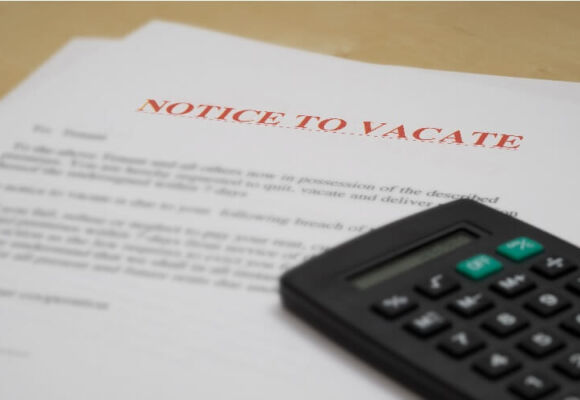We have a regular number of landlords who come to us wishing to get possession of their property back due to rent arrears accumulated by tenants who are not making their rental payments. Unfortunately, due to the cost of living crisis more and more landlords are facing a crisis where they are no longer receiving payments from tenants they are housing.
If you are a landlord having issues with a tenant, you can evict a tenant who has an Assured Shorthold Tenancy. This can be done using a Section 21 or Section 8 Notice, or both.
You would normally use a Section 8 Notice if your tenants have broken the terms of the tenancy, for example rent arrears.
Before serving notice, try to resolve any disputes with your tenant instead. For example, work with your tenant to manage rent arrears or agree a Rent Repayment Plan if they have rent arrears.
You can use a Section 21 Notice to evict your tenants either:
- after a fixed term tenancy ends – if there’s a written contract or
- during a tenancy with no fixed end date – known as a ‘periodic’ tenancy
When you cannot use a Section 21 Notice in England
You cannot use a Section 21 Notice if the property is a HMO (house in multiple occupation).
You also cannot use a Section 21 Notice if you have not given the tenants copies of:
- the property’s Energy Performance Certificate
- the government’s ‘How to rent’ guide
- a current Gas Safety Certificate for the property, if gas is installed
- the tenancy started after April 2007 and you have not put the tenants’ deposit in a Deposit Protection Scheme
- it’s less than 4 months since the tenancy started, or the fixed term has not ended, unless there’s a clause in the contract which allows you to do this
- the property is categorised as a HMO
You must have given your tenants the gas safety certificate and the ‘How to rent’ guide before they moved in to obtain possession of your property with a Section 21 Notice.
You must have also given your tenants a copy of the property’s Energy Performance Certificate before they rented the property.
How much Notice you need to give
In England, a Section 21 Notice must give your tenants at least 2 months’ notice to leave your property.
After you give Notice
Always keep proof that you gave notice to your tenants – either:
- fill in the Certification of Service Form (N215)
- write “served by [your name] on [the date]” on the notice
If your tenants do not leave by the specified date, you can use your completed N215 or Notice to Apply for an Accelerated Possession Order under s21.
Section 8 Notice of seeking possession
To give your tenants notice using a Section 8. You can give between 2 weeks’ and 2 months’ notice depending on which terms they’ve broken
Issuing Possession Proceedings
You can apply to the court for a Possession Order if your tenants do not leave by the specified date.
Once you have applied for a Possession Order, the Court will set a hearing date which is usually after four to six weeks’ time. The hearing normally lasts about 10 minutes.
If the tenant does not defend the Court proceedings, then the Court will normally make an order for possession at the first hearing.
However, if the tenant puts in a defence to the claim, then there is a possibility the Court will set the possession claim back and order a full hearing. If the Court does make a Possession Order, it normally states that the tenant should give up possession after 14 days. The tenant can ask the judge to give more time to find an alternative property for up to 42 days.
If you get a Possession Order using the Section 8 process, you can also ask the Court for an order that the tenant pays unpaid rent and fixed legal costs. However, if the tenant has limited finances, it is unlikely that you will recover this money from the tenant unless there is a guarantor.
Once you have a Possession Order, the tenant will hopefully leave the property. If your tenant does not vacate the property, you will be required to make a further application to Court for a Warrant of Possession. Once issued, the court bailiff will fix a date and time to evict your tenant. It is hoped that once you have a Possession Order, the tenant will leave without being forced to do so by the court bailiff.
In possession claims, the tenants do not defend the claim and the landlord gets the property back fairly quickly.
Written by Maariyah Yaqub, Solicitor in Dispute Resolution and Commercial Litigation.
#wearewaldrons

